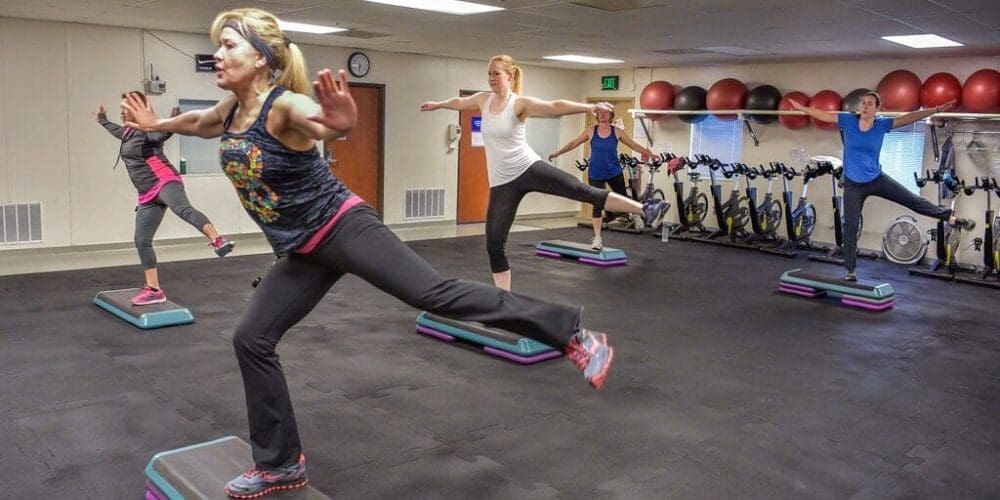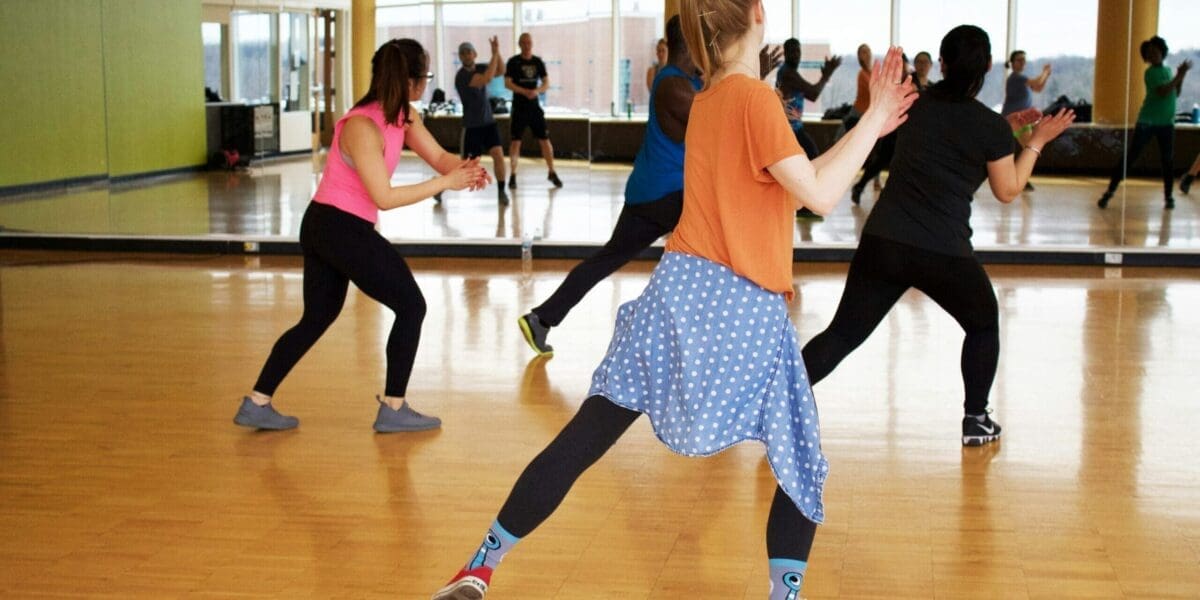Are you ready to explore the profound perks of aerobic exercise? Enhance your understanding of how this dynamic form of fitness can positively impact your cardiovascular system, emotional well-being, physical fitness, and overall health. From pumping up your heart health to boosting your mood, the benefits of aerobic exercise are vast and compelling. Stay tuned to uncover the secrets behind how this type of workout can revitalize your body and mind, setting you on a path towards a healthier and more energized lifestyle.
Key Takeaways
- Aerobic exercise improves cardiovascular health, blood pressure, and blood sugar regulation.
- It enhances mental well-being, sleep quality, and cognitive function.
- Helps with weight management, boosts the immune system, and prevents falls.
- Safe, affordable, and accessible for most individuals; start slowly and progress gradually.
Cardiovascular Health Benefits
Improving your cardiovascular health through aerobic exercise is crucial for enhancing heart function and promoting better blood circulation. Engaging in regular aerobic activities like running, cycling, or swimming can lead to improved endurance and overall heart health. By strengthening your heart muscle, aerobic exercise helps it pump blood more efficiently throughout your body, resulting in better oxygen delivery to your tissues. This increased blood flow can lower your blood pressure and reduce the risk of heart disease. Aim for at least 40 minutes of aerobic exercise 3-4 times a week to maximize these cardiovascular benefits. Prioritize your heart health through consistent aerobic workouts to enjoy a healthier and more robust cardiovascular system.

Mental and Emotional Well-being
Enhance your mental and emotional well-being through aerobic exercise by experiencing a range of positive effects on your mood and cognitive performance. Improving mood is a key benefit of aerobic exercise, with participants reporting significant reductions in symptoms of depression. Additionally, enhancing cognition is another advantage, as aerobic exercise has been linked to slowing brain tissue loss and improving cognitive function. Check out the table below for a summary of the mental and emotional benefits of aerobic exercise:
| Mental and Emotional Benefits | Effects |
|---|---|
| Improving Mood | Reduces symptoms of depression |
| Enhancing Cognition | Slows brain tissue loss and improves cognitive performance |
Physical Fitness Advantages
Engaging in aerobic exercise boosts your physical fitness by strengthening your cardiovascular system and improving overall health. Incorporating muscle strengthening techniques and endurance building strategies into your routine enhances the benefits even further:
- Muscle Strengthening Techniques
- Resistance training and bodyweight exercises improve muscle tone and strength.
- Incorporating weights or resistance bands challenges muscles for growth.
- Focus on major muscle groups like legs, back, and core for balanced strength.

Safety Precautions and Recommendations
For safe participation in aerobic exercise, it is important to consult with a healthcare professional before starting a new routine. Proper warm-up is essential to prevent injuries and prepare your body for the workout. Here are some key safety precautions and recommendations to keep in mind:
| Safety Precautions | Recommendations | Consultation Requirements |
|---|---|---|
| Check blood sugar levels if diabetic | Warm up adequately | Consult with a doctor if needed |
| Listen to your body and rest when needed | Stay hydrated throughout | Seek supervision for certain conditions |
| Use proper footwear and attire | Incorporate variety in exercises | Ensure exercise suitability |
Remember to prioritize your safety and well-being by following these guidelines and consulting a healthcare professional when necessary.
Guidelines for Effective Exercise
Considering your fitness goals, establishing a consistent and balanced approach to your aerobic exercise routine is essential. To guarantee effectiveness and progress in your workouts, focus on the following:
- Exercise Intensities: Vary the intensity of your workouts to challenge your body and improve endurance.
- Workout Progressions: Gradually increase the difficulty of your exercises to avoid plateaus and continue seeing results.
- Consistent Routine: Stick to a regular schedule to maintain momentum and see long-term benefits.
Conclusion
So, tie up those sneakers, consult with your doctor, and start reaping the amazing benefits of aerobic exercise. Strengthen your heart, boost your mood, manage your weight, and improve your overall well-being through this accessible and powerful form of exercise. With proper guidance and dedication, you can transform your health and vitality one step at a time. Get moving and feel the difference today!
Questions & Answers

Q: Can Aerobic Exercise Help Improve Symptoms of Anxiety and Stress?
Regular aerobic exercise can greatly improve symptoms of anxiety and stress. Engaging in physical activity boosts mental well-being and helps manage stress effectively. Exercise releases endorphins, acting as a natural mood booster. Incorporating aerobic exercise into your routine can lead to significant reductions in stress levels, promoting overall mental and emotional health. Prioritize your mental well-being by incorporating regular physical activity to combat stress and improve your quality of life.
Q: Is There a Specific Time of Day That Is Best for Aerobic Exercise to Maximize Its Benefits?
To maximize aerobic exercise benefits, consider morning vs. evening workouts. Ultimate timing varies based on personal preference and lifestyle. Morning workouts can boost metabolism and energy levels for the day. Evening sessions may help de-stress and unwind. Experiment to find what works best for you. Consistency is key regardless of the time chosen. Listen to your body’s signals and adjust as needed to optimize your exercise routine.
Q: How Does Aerobic Exercise Impact Bone Health and Osteoporosis Prevention?
Aerobic exercise, like running or dancing, boosts bone density and helps prevent osteoporosis. It strengthens bones by putting stress on them, prompting the body to build more bone tissue. Regular aerobic workouts also improve balance and coordination, reducing the risk of falls that can lead to fractures. Remember, consult a doctor before starting any new exercise routine, especially if you have concerns about bone health.
Q: Are There Any Specific Breathing Techniques That Should Be Used During Aerobic Exercise?
When engaging in aerobic exercise, focusing on proper breathing techniques can enhance your performance by optimizing oxygen intake and energy efficiency. Deep diaphragmatic breathing can help you maintain a steady rhythm and guarantee prevent fatigue. Inhale deeply through your nose, expanding your abdomen, then exhale slowly through your mouth. This technique guarantees adequate oxygen supply to your muscles, improving endurance and overall workout effectiveness. Practice controlled breathing to maximize your aerobic exercise benefits.
Q: Can Aerobic Exercise Help Improve Overall Flexibility and Mobility in Individuals With Joint Issues?
Aerobic exercise can greatly enhance joint mobility and flexibility in individuals with joint issues. By participating in regular aerobic activities like walking or swimming, you can strengthen muscles around joints, reduce stiffness, and improve overall range of motion. This is particularly advantageous for managing conditions like arthritis. Remember, consult with a healthcare provider before starting any new exercise routine, and start slowly to gradually build up your endurance and flexibility.



























